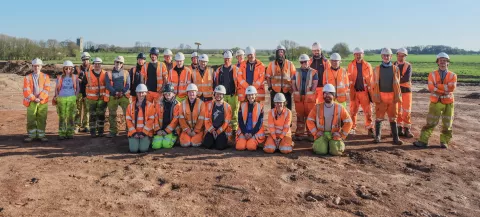Our people
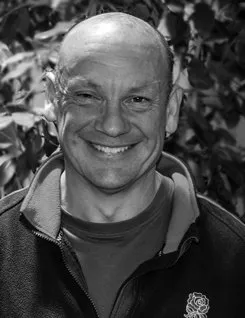
Steve has worked in commercial archaeology since graduating with a BA in Archaeology from the University of Birmingham in 2000. Steve has previously worked for archaeological units such as Birmingham Archaeology, Wessex Archaeology and Pre-Construct Archaeology (PCA) before joining Oxford Archaeology (then CCC AFU) in 2002. Steve has worked extensively in London, the Midlands, Cambridgeshire and East Anglia on a wide variety of site types in both urban and rural locations. In his current role as a Field Project Officer, he oversees excavations on site along with post-excavation work and report writing. Despite all the years of being frozen, scorched or soaked, Steve still enjoys (along with cheesy 80s tunes!) getting covered in mud with field work and takes pleasure in wielding a mattock on large features. Steve is an Associate of the Chartered Institute of Archaeologists (ACIfA).
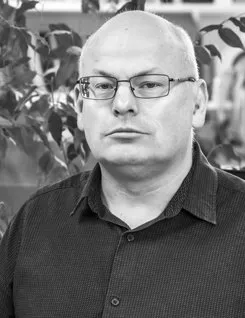
Stuart graduated from Durham University in 1990 with a BA (Hons) in Archaeology and Anthropology. He is a Member of the Chartered Institute of Field Archaeologists (MCIfA) with 33 years professional experience. He joined Oxford Archaeology in 1997 after an early career as a field archaeologist in Essex, Cumbria and elsewhere in the UK.
His range of experience includes environmental impact assessments, field surveys, evaluations, excavations and building recording. He has extensive practical experience of designing mitigation and preservation schemes, including codes of construction practice. He is particularly experienced in managing archaeological fieldwork and post-excavation projects on major infrastructure schemes, such as Oxford Archaeology's commitment to High Speed 1 and 2, the A30 Bodmin to Indian Queens Roadscheme, London Gateway Port in the Thames Estuary and the Hinkley Point C Connection Project. Since 2014 he has provided curatorial advice to the Government of Jersey Infrastructure, Housing and Environment team as part of a standing advisory contract.
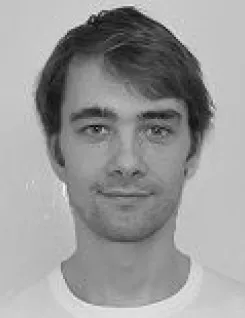
Stuart has worked as a professional archaeologist since 2009, and joined Oxford Archaeology in 2011. He has an MA in Landscape Archaeology from the University of Bristol, and also a BA in Mathematics and Computer Science from Oxford University.
As a Project Officer, Stuart runs larger evaluations and excavations from project setup, through fieldwork and into post-excavation write-up. He also undertakes GPS surveys (including earthworks) and graphics work, including photogrammetric production of 3D models. Some of his major projects include excavation of a Saxon cemetery in Cherry Hinton, Cambridge, Middle and Late Saxon settlement at Trumpington, Cambridge, and excavations on a prehistoric landscape at Melbourn, South Cambridgeshire.
Stuart is a Practitioner with the Chartered Institute for Archaeologists (PCIfA).

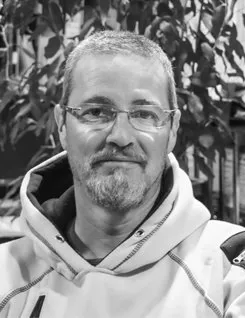
Toby graduated from the University of Leicester in 2007, and has since worked for various commercial archaeological units, predominantly in East Anglia. He joined Oxford Archaeology in 2013 and his current role sees him writing reports for sites he ran in Suffolk, Essex and Norfolk. His archaeological interests are broad but he mainly focuses on the Anglo-Saxon and medieval periods.
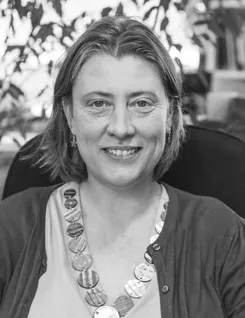
Anni graduated with a BA (Hons) in Archaeology from the University of Liverpool in 2002 then spent several years in commercial archaeology as a field supervisor and project officer on large linear projects across southern Britain. In 2008, she joined the British Museum's Portable Antiquities Scheme as Finds Liaison Officer for Oxfordshire and West Berkshire, during which time she recorded over 17,000 mostly metal artefacts and completed an MSc in Landscape Archaeology at the University of Oxford.
Anni left the PAS in 2019 to undertake a PhD with the University of Leicester and the Ashmolean Museum, investigating the Iron Age to Roman transition in Britain through coin hoarding. A Project Officer for Oxford Archaeology since 2020, Anni specialises in metalwork and coins of all periods and has contributed to many reports and publications spanning the Bronze Age to post-medieval periods.
Anni is a Member of the Chartered Institute for Archaeologists (MCIfA).
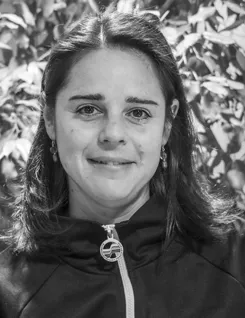
Carlotta graduated from University of Roma Tre in 2010 with an MA in Archaeology. She started her archaeological career in Italy and then, in 2015, moved to UK to work for the Museum of London (MOLA). Carlotta joined our Cambridge office in 2017 and worked on site for a year before transferring to the Finds Department where she enrolled in the Oxford Archaeology specialist training scheme in Iron Age pottery. Having successfully completed the scheme she now works primarily as an Iron Age pottery specialist, writing client reports and contributing to publications. She also analyses and reports on Neolithic and Bronze Age pottery assemblages.
As a Project Officer, Carlotta is responsible for the day-to-day organisation of the Finds Department, liaising with both office and field staff and external specialists. As an Iron Age pottery specialist, she has analysed and reported on numerous assemblages in East Anglia and, her research interests range from the Late Bronze Age to the transitional Late Iron Age-Early Roman period. Carlotta is a member of the Prehistoric Ceramics Research Group.
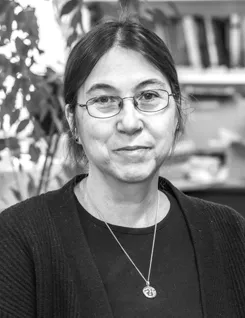
Leigh is Head of the Finds Department at Oxford Archaeology's Oxford office. She manages the processing, cataloguing, short-term curation and deposition of finds assemblages excavated by the field team, and also provides advice upon the lifting of fragile items found on sites. Leigh liaises with project managers, specialists (both internal and external), conservators and landowners to ensure the efficient and effective progress of the finds from excavation through to deposition. She also organises displays of finds for open days and exhibitions and assembles teaching boxes and handling collections for use in schools to promote the work of the Oxford Archaeology and share the findings with the public.
Leigh is also a finds specialist, and produces evaluation, assessment and publication reports on late medieval/post-medieval metalwork and worked bone objects of all periods. Recent work includes the large metalwork and worked bone assemblages from Oxford Archaeology’s excavations at Westgate and Magdalen College Oxford.
Leigh has a BA (Hons) in Ancient History and Archaeology from Nottingham University, a post-graduate Diploma in practical archaeology from Oxford University’s Department of Extramural Studies, and over 35 years’ experience in commercial archaeology.

